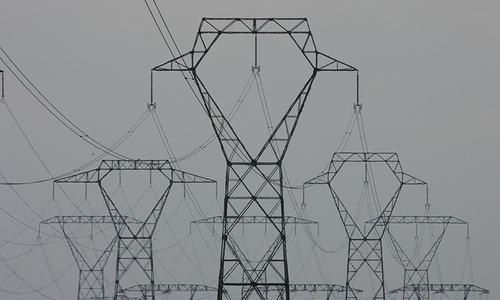ISLAMABAD: The financial close of first-ever High Voltage Direct Current (HVDC) transmission line was signed here on Wednesday.
The financial close of the 878km transmission line extending from Matiari to Lahore was signed in the presence of Power Minister Omar Ayub Khan and Chinese Deputy Chief of Mission in Pakistan, Lijian Zhao.
The HVDC transmission line is a private sector project being developed under China-Pakistan Economic Corridor (CPEC) with the facilitation of Private Power and Infrastructure Board (PPIB), Power Division, National Transmission and Despatch Company and other stakeholders.
Its main sponsor is China Electric Power Equipment & Technology, a subsidiary of State Grid of Corporation of China (SGCC). The company is responsible for execution of the project through formation of a special purpose company, Pak Matiari-Lahore Transmission Company Ltd (PMLTC).
The project is designed to have bi-pole HVDC technology, having two converter stations, one each at Matiari and Lahore, three repeater stations and two grounding electrode stations.
PPIB had issued letter of support to PMLTC in August 2017 and the National Electric Power Regulatory Authority granted Special Purpose Transmission License to PMLTC for the project in February 2018.
The project entails an investment of $1.65 billion and after fulfilling mandatory prerequisites as well as completion of all financing arrangements, it has successfully achieved financial close.
Commercial operations of the line are scheduled by March 2021 under the Build-Own-Operate-Transfer model, and it will be transferred to NTDC after a term of 25 years. This transmission facility will primarily be utilised to transmit power generated from indigenous Thar coal-based projects.
Talking to media, Ayub said the project was important as the power transmission infrastructure will be available to transport the electricity from the generation source to the load centres. He said the government is focusing on energy security and power generation from indigenous resources.
Currently 60 per cent electricity is being generated through oil and gas. “We have planned to change the energy mix and generate 30pc from renewable resources by 2030,” he added. The overall generation capacity in 2030 is expected to be 55,000MW of which 18,000MW to be generated through renewable resources.
Zhao said the project will create 6,000 jobs. Apart from the HVDC project, PPIB is currently facilitating implementation of power projects having cumulative capacity of 10,934MW under CPEC, which include various hydel and coal-based projects.
Published in Dawn, February 28th, 2019













































